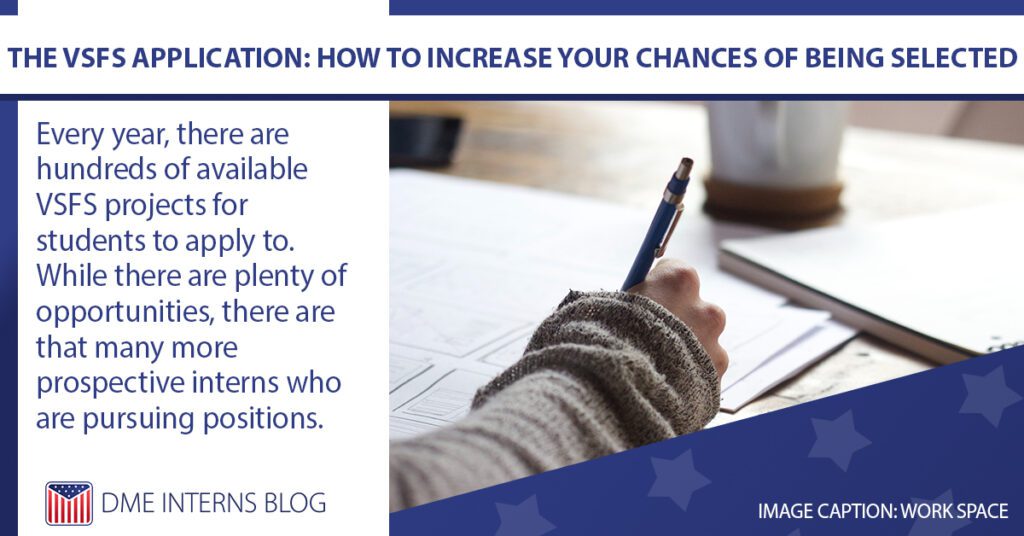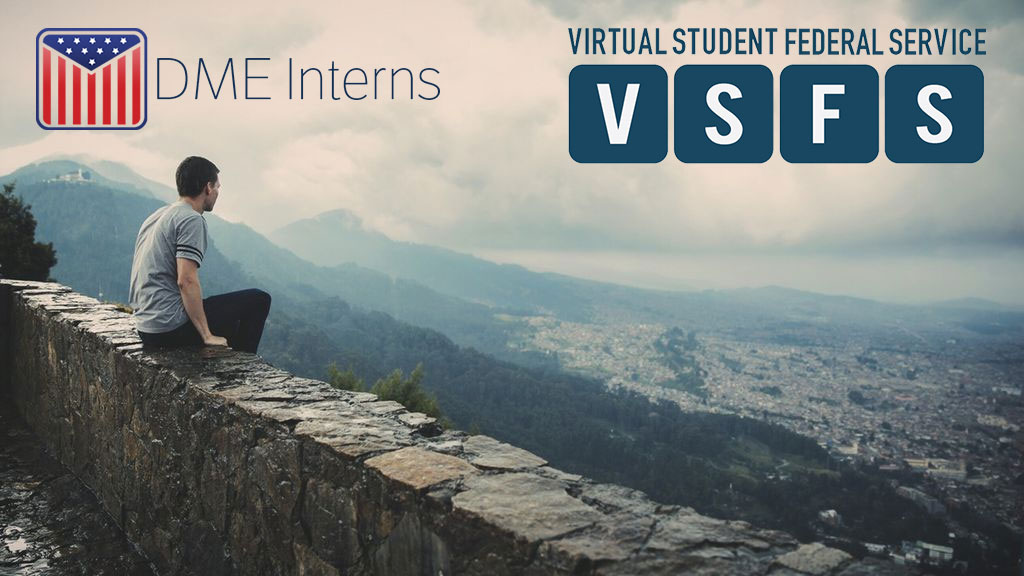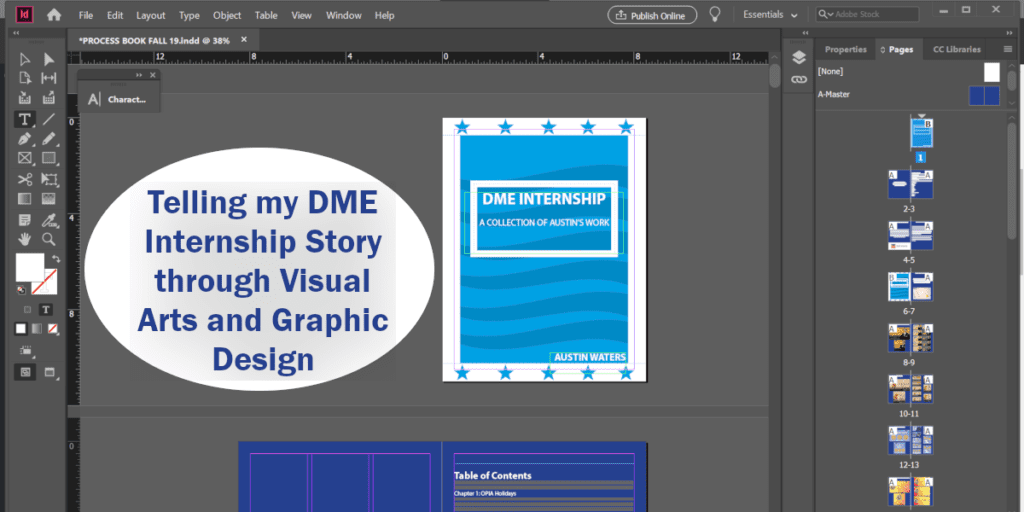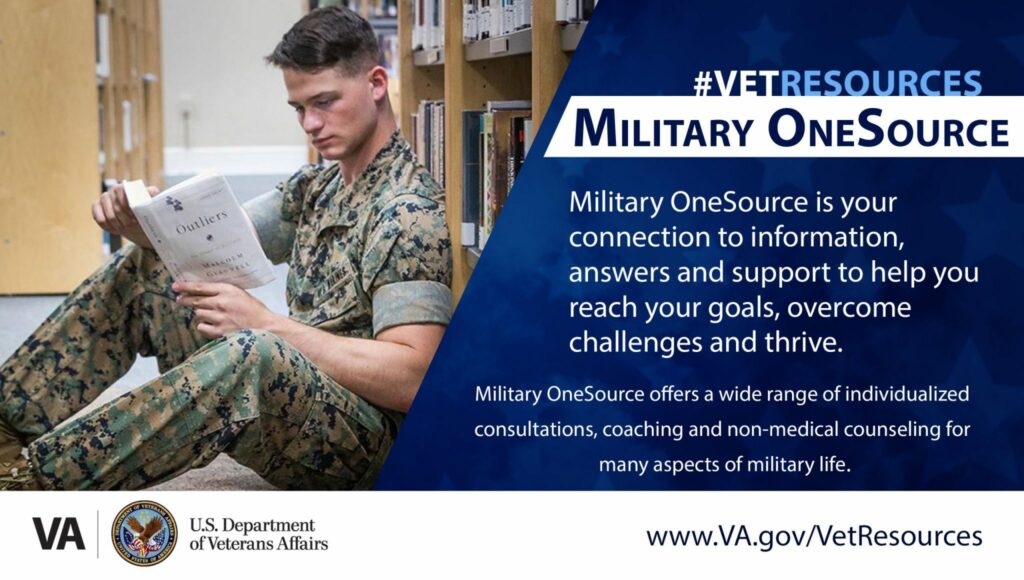Are you looking to secure a virtual internship with the VA Digital Media Engagement (DME) Team or any Virtual Student Federal Service (VSFS) position? It can be challenging to navigate the USAJobs application, so here are some tips from a DME executive leadership team member (ELT) to help you increase your chances of being selected!
Every year, there are hundreds of available VSFS projects for students to apply to. While there are plenty of opportunities, there are that many more prospective interns who are pursuing positions. One of my responsibilities as ELT last summer was to personally sort through applications and select the interns for the writing and editing departments. Out of approximately 90 applicants across both departments, only 40 to 50 received offers.
Not all VSFS and DME positions receive that many applicants. But when they do, it means applications must stand out for a candidate to receive an offer—whether for an interview or the position itself. Though I cannot speak on behalf of all DME departments and VSFS project mentors, here are some general application tips and best practices to help you get noticed:
Show Your Interest
Even if you are applying to three different VSFS projects, it is important to show your specific interest in each of them. An easy way is to note key words that appear in the description of the position and qualifications. Then, make sure to include them in your resume and personal statement. Immediately, this shows you have done your research and have a basic understanding of what you are applying for.
Be sure to also check for spelling and grammar errors. If you are applying for a position with the U.S. Department of Veterans Affairs (not Veteran’s Affairs), make sure to show you know how to spell the agency’s name at least.
Resume
VSFS mentors only have access to your resume and personal statement, so you want them to be as detailed yet concise as possible. Do not simply list your extracurricular activities, job and work titles, but make sure to include descriptions of your responsibilities and accomplishments. Even if you think your experiences are not directly relevant, you have acquired transferable skills, so your descriptions should demonstrate how you can apply your experiences to the role(s) in question. This is where those key words will come in handy. Keep in mind, though, that descriptions should be relevant and succinct. If too wordy, it becomes hard to read. For more tips on how to navigate the USAJobs resume builder, check out this blog post.
Personal Statement
This is probably the most important part of the application. Based on my experience, you will want to hit on each of the following points to maximize the effectiveness of your statement:
- Convey why you are interested in the project and what you hope to get out of it (“What will the internship do for you?”).
- Convey what you can bring to the role (“What will you do for the internship?”). Many statements tend to omit this, as the applicant will only focus on why the project interests them. Interest is important, but this does not give VSFS mentors a very clear picture of your qualifications and ability to do the job well. Even if you have already mentioned it in your resume, you should point again to one to two specific examples of your relevant experience or skillset. Again, key words will come in handy.
You can get creative with your personal statement, especially to draw the reader’s attention. But make sure you are not too casual with your reader or stray from the purpose, which is to convey in a limited number of words why you are the best candidate. On that note, a longer statement tends to look (and be) more well-thought-out than a statement that is only a few sentences long.
Final Takeaways
Remember to fill out all required sections of the USAJobs application and keep track of the due date. You have from July 1 to 31 to submit.
Finally, one word of advice from the DME internship supervisor: Do not get political, as those working for the government are supposed to be apolitical in the performance of their duties.
Good luck!
Writer: Adelaide Choi
Editors: Julia Pack and Amra Kandic
Graphic Designer: Katie Rahill




